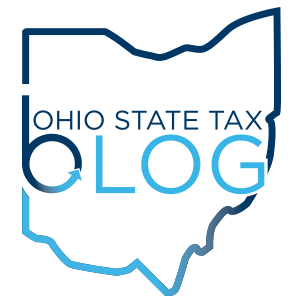Ohio Real Property Tax – Were you impacted by the wave of property tax increases? It’s time to check if your property tax valuation is inflated
As we’ve seen significant property value appreciation over the last few years, owners and commercial/industrial tenants need to be aware of the opportunity to contest their property’s valuation. Objections to real property tax valuation to reduce 2023 taxes, paid in 2024, must be filed with your County’s Board of Revisions by April 1, 2024. Many Ohio property owners who recently received their 1st half tax bills may have been shocked at the increases in their property taxes. It is critical for property owners and long-term tenants to review the tax valuation of their property now to ensure it accurately reflects the fair market value.
Property values are often inflated for the following reasons:
- Changes to property condition adversely affecting value;
- Valuation updated for a recent purchase includes significant value for personal or intangible property;
- Termination/default by tenants; and
- General property value trends not applicable to particular property or area.
A taxpayer who believes the county assessment is too high may contest the valuation and reduce the taxes owed by establishing that a lower valuation is justified. This proof often involves a professional appraiser’s opinion of the reduced valuation, although certain circumstances may support a lower valuation without retaining an appraiser.
Each Ohio County reappraises or updates property values every triennium or three years. However, more than 25% of Ohio’s 88 Counties adjusted property values for taxes due this year due to unusual timing. In Northeast Ohio, Geauga, Mahoning, Richland, and Trumbull County properties were reappraised for the 2023 tax year, while property values in Ashland, Ashtabula, and Summit County were updated. Additionally, several counties with major cities, such as Cincinnati (Hamilton), Columbus (Franklin), and Dayton (Montgomery), were also reappraised or updated.
Changes to Ohio’s laws in recent years have also limited municipalities and school board discretion to file complaints seeking to increase property values. Under Ohio House Bill 126 (effective July 21, 2022) a locality may only challenge a property’s valuation if the property was sold in a recent arms-length transaction prior to the applicable tax lien date (i.e. January 1, 2023) and the sale price exceeds the county’s value by 10% and at least $500,000. Further, the law prohibits school boards from appealing property owner victories at the County BOR.
Finally, certain commercial and industrial tenants who are liable for real property taxes (for example, tenants under triple-net leases) should also consider contesting their leased property’s valuation. Commercial tenants, especially those impacted by a casualty, or change in occupancy among subtenants, should not miss the opportunity to lower their property taxes and reduce overall operating expenses.
If you believe your property’s value is overstated, received notice of a school board’s complaint to raise your real property tax value, or have questions about how to support a lower value, please do not hesitate to contact us.
